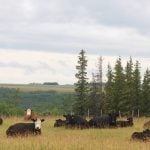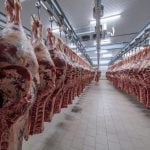
Tag Archives pages from our past
History: New Beef Cattle Have Bison Blood
Reprinted from the February 1951 issue of Canadian Cattlemen
Experimental farms develop Cattalo Less that a century ago vast herds of American bison or buffalo roamed the mid-western plains of Canada and the United States. For many years these hardy animals were the chief source of meat for the Indians and the advance guard of early white settlers pushing westward in their covered wagons. […] Read more
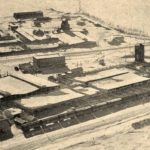
History: Lethbridge, South Alberta’s Thriving City
Reprinted from the February 1951 issue of Canadian Cattlemen
Lethbridge, South Alberta’s Thriving City By H. G. Long, Lethbridge, Alta. ‘Lethbridge had its beginnings in coal and cattle. Host city to the 55th annual convention of the Western Stock Growers’ Association Feb. 8th and 9th, Lethbridge in the 65 years of its existence has grown to be a city of some 23,000 serving a […] Read more
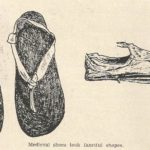
History: The Romance of Leather and Its Importance to Mankind
Reprinted from the February 1951 issue of Canadian Cattlemen
The Romance of Leather and Its Importance to Mankind Reprinted through the courtesy of the Tanners’ Council of America ‘Some of the most important dates in the history of mankind will never be known – the most anyone can do is guess about them. When did people first use fire? When was salt first used? […] Read more
History: From Gypsy Boy to Cattle King
Reprinted from the February 1951 issue of Canadian Cattlemen
From Gypsy Boy to Cattle King By P. W. Luce, Vancouver, B.C. ‘There hangs in the Kamloops museum an enlarged portrait of Johnny Wilson, one of the striking personalities of the early days of the cattle industry in British Columbia. The frame is heavy and ornate in the style of the nineties, and the picture […] Read more
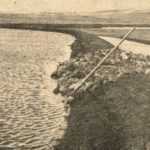
History: Winter Feed with Spring Flooding
Reprinted from the February 1951 issue of Canadian Cattlemen
Winter Feed with Spring Flooding R. E. McKenzie, Forage Plants Division, Experimental Station, Swift Current, Sask. ‘Winter feed is one of the most important factors in the successful operation of the livestock industry in Western Canada. The rancher may survive low prices, disease epidemics and other troubles but he cannot stay in business very long […] Read more
History: One Man’s Opinion
Reprinted from the January 1951 issue of Canadian Cattlemen
By Richard I Needham Originally published in the Jan. 24, 1951 Calgary Herald It’s beginning to look as though the British will have to become vegetarians. Their meat ration is now at an all-time low — lower than it was during the German submarine blockade of World War Two — and it’s likely to go […] Read more
History: A Territories Shepherd
Reprinted from the January 1951 issue of Canadian Cattlemen
A Territories Shepherd By J. F. MacCallum, Swift Current, Sask. ‘I was born on June 6, 1882, at Inverary, Argyleshire, Scotland… I arrived in Moose Jaw on March 20, 1898. It was twenty-five degrees below zero. It was very cold weather for me to experience at the beginning. Moose Jaw then had a population of […] Read more
History: A Proposed New Method of Assessing Land for Tax Purposes
Reprinted from the January 1951 issue of Canadian Cattlemen
A Proposed New Method of Assessing Land for Tax Purposes By T. H. Freeman, Director of Assessments for Saskatchewan ‘As a preface to the subject, it might be advisable to review very briefly the methods used in the past for assessing grazing land or what is technically described as Land Class 1. In 1939 a […] Read more
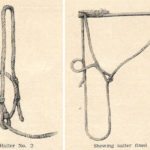
History: Modern Horse Training
Reprinted from the January 1951 issue of Canadian Cattlemen
Modern Horse Training By Jack Sproule, Calgary, Alta. ‘This article is based entirely on my own practical experience in the training of horses, no part of it has been derived from any educational system or books, It has been written because I feel people who are horse-minded will benefit by this system of training as […] Read more
History: The Pig that Squealed for War
Reprinted from the January 1951 issue of Canadian Cattlemen
The Pig that Squealed for War By P. W. Luce, Vancouver, B.C. ‘In 1859 one “Ly” Cutler, a hot-tempered Yankee, shot a Hudson’s Bay Company’s pig which was ravaging his potato patch on San Juan Island. By right of occupation for sixteen years, the Company claimed the territory as a British possession, but the claim […] Read more

